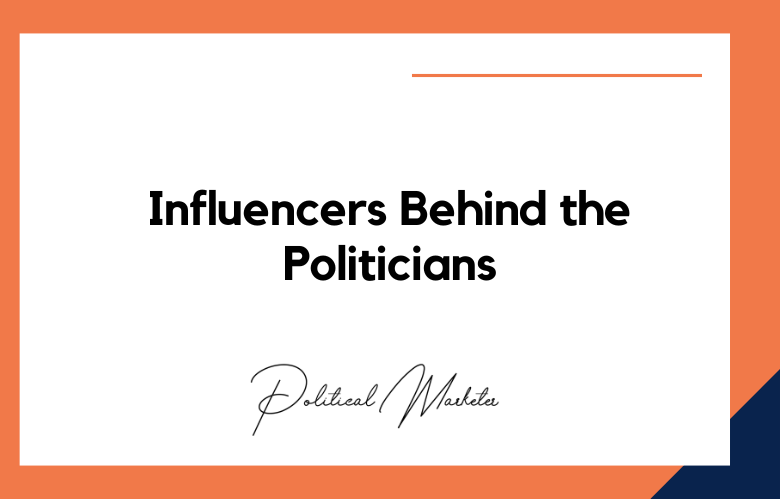Political micro-targeting has been around for some time, but with technological advancement, it is evolving in unprecedented ways. Generative AI, in particular, is increasingly becoming the new tool in the arsenal of political micro-targeting. It involves programming machines to analyze complex data, identify patterns, and generate content autonomously.
With this new technology, political campaigns can reach their target audience more effectively and precisely. We will look at how generative AI is changing the face of political micro-targeting.
How Generative AI is Revolutionizing Political Micro-targeting
In today’s world, political parties are keen to find innovative ways to engage voters and persuade them to their side of the aisle. Artificial Intelligence (AI) plays an increasingly significant role in election campaigns.
It could revolutionize campaign strategies and change how political parties engage with voters.
One of these developments is generative AI, a new technology playing an ever more prominent role in political micro-targeting. We will explore generative AI, how it works in political micro-targeting, and its impact on campaigns.
Generative AI is a form of artificial intelligence used to create new content that appears authentic and unique.
Its algorithms learn to create content in the likeness of the source material. This technology can create texts, images, and even videos. Generative AI algorithms can be trained on large datasets, making it possible to generate results that seem realistic to human observers.
The Role of Generative AI in Political Micro-targeting: An Analysis
Political micro-targeting isolates and targets specific groups with personalized messages in political campaigns. In today’s age, reaching voters on a more personal level has become increasingly important, and this is where generative AI comes into play.
Generative AI is an emerging technology that can transform the political landscape in more ways than one. We will take a closer look at the role of generative AI in political micro-targeting and its impact on election outcomes.
Generative AI has the power to transform the way political campaigns are run. It allows political parties to analyze large amounts of data about voters, such as demographics, interests, and voting history, to create personalized messages tailored to each individual.
Using generative AI, campaigns can communicate with voters more effectively by providing information that resonates with their interests and beliefs. This can help increase voter turnout and engagement, making it easier for parties to persuade voters to support their candidates.
Understanding the Impact of Generative AI on Political Micro-targeting
Technology has changed how political campaigns are run and made it easier for candidates to reach out to potential voters across various platforms.
One of the key technological advancements in recent years is the use of generative AI in political micro-targeting. While the potential benefits of this technology are numerous, there are also several concerns surrounding its use. We’ll look at generative AI and its impact on political micro-targeting.
Generative AI is a machine learning technology that enables computers to generate new data and content. In the context of politics, generative AI is used to create personalized political messages tailored to individual voters’ specific interests and preferences.
The Implications of Generative AI in Political Micro-targeting
In this fast-paced world of technology, innovations come and go, many improving our lives. Generative AI is an innovation that has gained immense attention worldwide in recent years.
Technology has advanced and found a place in various fields – from science, medicine, and engineering to marketing and politics. In particular, generative AI has gained interest in political micro-targeting.
Political campaigns have used sophisticated targeting strategies to make the most of their advertising budgets in the past. However, generative AI advancements may bring new dimensions to political micro-targeting.
Explores how generative AI can revolutionize political advertising through hyper-targeted messaging, the impact on elections, and its legal and ethical considerations.
Best Practices for Generative AI and the Impact on Political Micro-targeting
Increased Efficiency in Campaigning
Political campaigns are costly endeavors, and they require a lot of resources. With generative AI, campaigns can generate targeted content faster and at a lower cost.
Traditional campaigns rely on a team of experts to analyze data and develop strategies. Generative AI simplifies this process, enabling a few experts to generate a high volume of personalized communication. By doing so, campaigns can engage more people in less time.
Increasingly Personalized Communication
Generative AI enables campaigns to generate communication tailored to an individual’s needs. This level of personalization is something that traditional campaigns need help to achieve.
Generative AI analyzes data, such as social media, shopping behavior, and other online activities, to determine an individual’s interests, preferences, and habits. With this information, campaigns can create targeted communication that resonates with individuals.
Greater Predictive Precision
Generative AI’s ability to analyze complex data and create predictive models helps campaigns identify voters and issues most likely to drive support.
Generative AI models are based on historical data, such as voting patterns, demographic data, and other factors.
Using these predictive models, campaigns can focus their efforts on critical issues and voters most likely to support them. This approach ensures that campaigns reach their target audience and use resources efficiently.
Ethical Concerns with Generative AI in Political Discourse
Using generative AI in political discourse raises ethical concerns, particularly around biased messaging and manipulated media. Machine learning models are only as good as the data they are fed, and personal data could lead to biased messaging.
Using manipulated media raises concerns over the authenticity of communication and the potential harm it may cause. With the increased use of generative AI in political campaigning, we must approach the technology cautiously and ensure it is ethically sound.
Need for Transparency and Regulation
Generative AI is an incredible technology that has the potential to revolutionize how political campaigns are run. However, as with many new technologies, regulation and transparency are necessary to prevent the misuse of its power.
There should be transparency in how campaigns use generative AI. There need to be regulations against disseminating manipulated media and biased messaging. Without proper rules, there is a risk of unscrupulous campaigns using these technologies to influence voters.
Generative AI creates hyper-targeted Messaging.
Generative AI has the potential to generate a vast amount of content that is tailored to individual voters. These messages can go beyond traditional polling data, including deep profiling of voters’ online activities and data.
Using this technology, political campaigns could create thousands of hyper-targeted advertisements and deploy them across the internet via social media, email, and text to reach a specific demographic accurately.
This technology’s potential is overwhelming as campaigns can tailor the messaging to micro-target particular groups, which traditional campaigns have yet to achieve.
As a result, political campaigns would no longer need to make generalized statements that have the potential to miss the voters’ issues they’re trying to speak to. Instead, generative AI can help campaigns create more significant insights into what voters care about and tailor messaging to their needs.
Generative AI creates Ethical Concerns.
The use of generative AI in political micro-targeting raises serious ethical concerns. Deep profiling techniques increase data privacy implications, which involve exploiting individual voters’ data. These data can be used to manipulate voters’ political views, which infringes on voters’ rights.
Moreover, generative AI could create a generational divide in civic engagement as generational voters interact with political campaigns differently.
Older adults often engage with political campaigns offline, while younger generations actively engage on social media platforms. If generative AI is deployed over social media, it could give younger voters an unfair advantage in the voting process.
Generative AI creates Legal Concerns.
In addition to ethical concerns, there are legal implications of using generative AI in political micro-targeting. Federal election laws require campaigns to disclose the source and a complete record of the expenditure of their funding.
With generative AI, tracking how political campaigns use their contribution and establishing accountability metrics won’t be easy. As a result, generative AI in political micro-targeting raises questions about the transparency of political campaign ads and the accountability of regulators.
Generative AI Could Impact the Outcome of Elections
Given the advantages of using generative AI in political campaigns, it can significantly impact the outcome of elections.
Campaigns that leverage the technology will have a significant advantage over their competitors, allowing them to reach voters with messages tailored to their preferences. This can skew the results of an election towards a candidate employing generative AI technology.
Moreover, generative AI could also breed new forms of political extremism and polarize political ideology, leading to campaigns that are more concerned with appealing to the base than reaching out to all voters.
It could change how political campaigns are run in the future, which could impact the political process in the long run.
Conclusion:
Generative AI can change the political landscape for good or bad. There needs to be transparency and regulation to ensure that it is used ethically and responsibly.
Political campaigns must be transparent in how they use these technologies. Regulations should be implemented to prevent the dissemination of manipulated media and biased messaging.
Undoubtedly, generative AI will increasingly become a fixture in political discourse. It is up to us to ensure it is done ethically and responsibly.
Call: +91 9848321284
Email: [email protected]
Political Micro-targeting: FAQs
What is generative AI in the context of political marketing?
Generative AI uses machine learning models to create content—such as text, images, or videos—used in personalized political communication.
How does generative AI enhance political micro-targeting?
It allows campaigns to produce personalized content at scale, matching individual voter profiles, behaviors, and preferences.
What types of generative AI content are used in political campaigns?
Campaigns generate emails, social media posts, chatbot responses, videos, memes, and ad copy tailored to specific voter segments.
How does generative AI improve voter segmentation?
It analyzes large datasets to refine voter personas and predict which messages will resonate with each audience.
Is generative AI used to create deepfakes in politics?
Yes. Deepfakes—synthetic videos or audio—can be created with generative AI and may be used unethically for misinformation or defamation.
Can generative AI influence voter behavior?
Yes. Personalized messaging based on emotion, ideology, or issue alignment can shape voter opinions and decisions.
What are the ethical concerns of using generative AI in political campaigns?
Key concerns include manipulation, lack of transparency, misinformation, and diminished voter consent.
How does generative AI support A/B testing in micro-targeting?
It quickly produces content variations, enabling real-time testing and optimization of messaging effectiveness.
Can AI-generated political content be detected by voters?
Not easily. High-quality AI models generate content that closely mimics human tone and style.
What role does generative AI play in real-time content delivery?
AI delivers dynamic content based on user interactions, distributing personalized messages instantly across platforms.
Is generative AI used in political chatbots?
Yes. AI-powered chatbots simulate candidate responses or campaign conversations tailored to users’ interests.
How does generative AI help in multilingual political outreach?
It produces persuasive content in multiple languages, making outreach to diverse linguistic groups faster and more effective.
What is synthetic campaigning in the context of generative AI?
Synthetic campaigning automates political messaging using AI, reducing the need for human involvement in content creation.
Can generative AI reinforce political echo chambers?
Yes. Over-targeted content may isolate voters from diverse viewpoints, deepening polarization.
How do political consultants use generative AI for narrative control?
They use AI-generated content to shape perception, counter criticism, and amplify positive messaging.
What tools are used for generative AI in political micro-targeting?
Popular tools include ChatGPT, DALL·E, Midjourney, Synthesia, Jasper AI, and campaign-specific platforms with AI integration.
How does generative AI affect campaign speed and agility?
It enables rapid content creation, adjustment, and delivery, allowing campaigns to react quickly to emerging issues.
Are there regulations on the use of generative AI in elections?
Regulations vary by country. Some nations are developing election-specific AI laws, while others lack clear policies.
How can campaigns maintain ethical standards while using generative AI?
They should disclose AI-generated content, avoid false information, ensure human oversight, and comply with data protection laws.
What is the future of generative AI in political micro-targeting?
Expect deeper personalization, cross-platform automation, real-time persuasion, and increased scrutiny over transparency and ethics.











